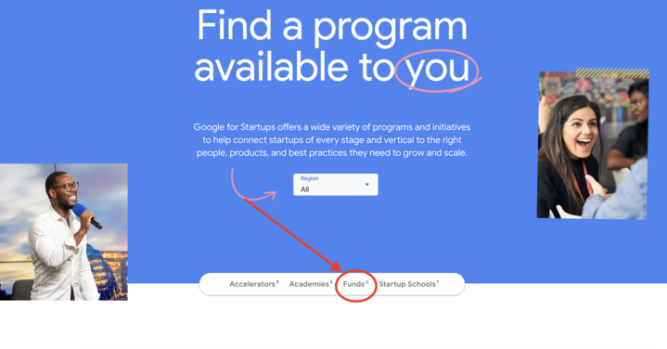In a surprising shift, Google has made significant changes to its Google for Startups Founders Fund web page, quietly altering language and scaling back its grant offerings. The adjustments come just weeks after the tech giant announced a review of its diversity, equity, and inclusion (DEI) initiatives — raising questions about the future of support for minority founders.
A Sudden Shift in Language and Support
Google’s Founders Fund, launched in 2020, was designed to provide crucial resources to startups led by underrepresented founders, including women, Black, and Latino entrepreneurs. The program offered monetary grants, mentorship, and product support like credits for Google Cloud services. According to the website, over $50 million in funding was distributed to more than 600 founders globally, helping businesses thrive in competitive markets.
However, a recent update to the site reveals an abrupt change: the fund descriptions are now written in past tense, and the word “underrepresented” has been quietly scrubbed from key sections of the site. Where the page once highlighted financial support for underrepresented and at-risk founders, it now speaks more generally of providing resources to “innovators.”
Programs Marked as “Past” and No Current Opportunities
According to internet archives, these changes occurred after December. The site now lists programs such as the Women’s Founders Fund, Latino Founders Fund, Black Founders Fund (U.S. and Brazil), and Ukraine Support Fund as past initiatives — with no current grant programs available. The page explicitly states there are “zero” active funding opportunities across all regions.
While Google still offers programs that train founders on AI products and supports startup accelerators in industries like energy and climate, the once-celebrated targeted grant programs for marginalized founders have seemingly disappeared.
Google’s Vague Response and a New Focus on AI
When asked about the status of these grant programs, Google’s response was ambiguous. A spokesperson explained that applications for the U.S. Founders Fund have not yet opened for 2025 and that support continues for alumni of past cohorts. Yet the statement also hinted at a strategic shift toward AI-focused startups:
“In 2025, we’ll invest in AI-focused startups in the U.S. and we will share more specifics at a later date.”
This statement leaves lingering uncertainty about whether Google plans to reinstate grants for diverse founders or if those initiatives are being phased out entirely.
The Broader Backlash Against DEI Programs
The tech industry’s evolving stance on DEI programs is not unique to Google. In recent months, several tech giants have started dialing back public commitments to diversity amid mounting political and legal pressure. Companies are facing lawsuits over grant programs specifically targeting minority founders, with critics claiming such initiatives constitute reverse discrimination.
For instance, Fearless Fund, which supported Black women founders, had to shut down its grant program after a legal battle. PayPal is also embroiled in a lawsuit over its funding commitments to Black and Latino entrepreneurs. Meanwhile, Google itself recently removed DEI mentions from its annual 10-K filing and dropped diversity targets, signaling a broader retreat from public-facing DEI commitments.
The Delicate Balance for Tech Giants
Despite the public rollbacks, reports suggest many companies are quietly maintaining DEI efforts behind closed doors. This dual approach underscores the complex balance businesses must strike — supporting diversity while mitigating legal risks and avoiding public scrutiny.
Google’s quiet language changes and the disappearance of underrepresented-focused grants epitomize this tension. It reflects the challenges companies face in sustaining inclusive initiatives in an increasingly polarized landscape.
What Lies Ahead?
The future of Google’s Founders Fund remains uncertain. While the company promises ongoing support for past recipients and teases forthcoming AI investments, the absence of clear plans to relaunch programs for minority founders raises concerns about lasting support for diversity in tech entrepreneurship.
Founders who once relied on Google’s funding and mentorship may now be left searching for alternative avenues. As the tech landscape continues to evolve, it remains to be seen whether Google — and the broader industry — can reconcile innovation with inclusion or if the political climate will continue to stifle DEI progress.
For now, the message is clear: the days of tech giants proudly touting support for underrepresented founders may be fading, replaced by a quieter, more cautious approach in an era of legal uncertainty.
Stay tuned for updates as this evolving story unfolds.










